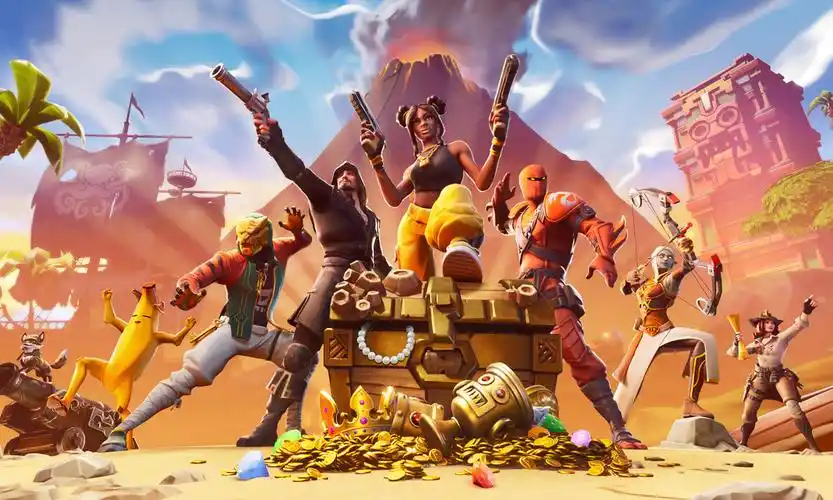Decoding the Digital Arena: An Expert Dissection of Modern Game Industry Dynamics
The video game industry, a behemoth of modern entertainment, is in a perpetual state of hyper-evolution. News cycles are dominated by multi-billion-dollar acquisitions, groundbreaking technological shifts, and complex socio-economic debates that ripple far beyond the screen. To the casual observer, these are isolated events; to the expert analyst, they are interconnected threads in a vast, dynamic tapestry. This article delves into the core developments shaping the industry, moving beyond the headlines to explore the underlying strategies, implications, and future trajectories.
The Consolidation Gambit: Microsoft, Activision-Blizzard, and the New Ecosystem
The seismic acquisition of Activision-Blizzard by Microsoft for nearly $69 billion was more than a financial transaction; it was a strategic declaration of a new era. Expert analysis reveals this move as a multi-layered gambit designed to fundamentally alter the competitive landscape.
Firstly, it is a clear content and IP power play. By incorporating franchises like Call of Duty, World of Warcraft, and Candy Crush, Microsoft instantly supercharges its Xbox Game Pass subscription service. The goal is not merely to sell more consoles but to make Game Pass an indispensable, Netflix-like service for gamers. This "content is king" strategy aims to create a virtuous cycle: a vast library attracts subscribers, which funds more content, which in turn attracts more subscribers, thereby future-proofing the business against the cyclical nature of console hardware sales.
Secondly, the acquisition is a cornerstone for Microsoft's broader cloud gaming and metaverse ambitions. Activision-Blizzard’s portfolio offers live-service, community-driven worlds with massive, engaged user bases. These are ideal testing grounds for cloud-based gameplay and the social-platform aspects of Microsoft's envisioned metaverse, positioning the company to compete not just with Sony and Nintendo, but with Meta and Amazon in the next computing paradigm.
The Engine of Creation: Unity’s Pricing Debacle and the Developer Backlash
In late 2023, Unity Technologies, provider of one of the world's most ubiquitous game engines, attempted to implement a new Runtime Fee pricing model. The announcement triggered an unprecedented firestorm from developers, leading to a swift and dramatic reversal. This episode is a critical case study in platform governance and developer trust.
From an analytical standpoint, Unity's misstep was twofold. Technically, the initial proposal to charge fees per game installation was perceived as punitive, unpredictable, and potentially devastating for indie developers and free-to-play studios with high install counts but low revenue per user. It introduced significant financial uncertainty into game development, a field already fraught with risk.

More profoundly, the backlash highlighted the fragile social contract between engine providers and their developers. Engines like Unity and Unreal are not just software; they are foundational platforms upon which entire businesses are built. Trust, stability, and predictable economics are paramount. The episode underscored that the engine market, while a duopoly, is contestable. Unity’s failure to consult its community before the announcement demonstrated a top-down approach that the modern, democratized development community will not tolerate. The long-term impact may be a gradual shift of trust and talent towards open-source alternatives and competitors like Unreal Engine and Godot, emphasizing that in the tools business, the user community holds ultimate power.
The Generative AI Revolution: Disruption and Discontent
No technological force is poised to disrupt game development more than Generative AI. Its integration is moving from novelty to necessity, automating tasks from code generation and bug fixing to creating vast, dynamic dialogue trees and concept art. This promises immense efficiency gains, reducing development time and costs for studios of all sizes and potentially enabling smaller teams to create more ambitious, content-rich worlds.
However, expert analysis must also confront the significant ethical and legal quandaries. The core issue lies in the data used to train these AI models. Many are trained on vast datasets scraped from the internet, often without the explicit consent of the original artists, writers, and programmers whose copyrighted work is ingested. This has sparked fierce debate about intellectual property rights, the devaluation of human artistry, and the potential for large-scale job displacement in creative roles.
The industry is thus navigating a tightrope. On one side lies the promise of a new golden age of creativity and accessibility. On the other, the peril of legal battles, ethical breaches, and a degraded value proposition for human creators. The path forward will require robust ethical frameworks, transparent training data practices, and a collaborative redefinition of the creator's role in an AI-assisted workflow.
The Esports Reckoning: Sustainable Growth or Market Correction?
Once the darling of investors, the esports sector is experiencing a painful period of correction. High-profile organizations are facing financial hardship, laying off staff, and exiting leagues. This trend points to a fundamental mismatch between the exuberant expectations of the past decade and the hard economic realities of the present.
The primary challenge is the unsustainable cost of league franchising. Multi-million dollar buy-ins for spots in premier leagues like the Overwatch League and Call of Duty League created enormous debt burdens for teams before a single game was played. While viewership is substantial, monetization through sponsorships and media rights has not kept pace with these inflated costs. The reliance on endemic sponsors (gaming adjacent brands) has also proven vulnerable to economic downturns.
Expert analysis suggests this is not the death of esports, but a necessary market correction. The future likely belongs to a more diversified and sustainable model. This includes a greater focus on content creation (e.g., leveraging streamers and personalities), exploring revenue-sharing models that better benefit the teams, and developing grassroots, community-driven tournaments alongside the premier events. The industry is maturing, moving from a speculative bubble towards a more grounded, business-conscious ecosystem.
Conclusion: Navigating the Interconnected Future
The developments within the game industry are not isolated phenomena. The push for subscription content fuels mega-acquisitions. The tools for creation become platforms with their own socio-economic policies. New technologies promise efficiency while threatening established norms. The spectacle of competition seeks a viable business model.
Understanding this landscape requires expert analysis that connects these dots, seeing the industry as a complex, adaptive system. For developers, investors, and players alike, the key to navigating the future lies in recognizing these interconnections and anticipating the second and third-order effects of today's headline-making news. The game is being played not just on our screens, but in boardrooms, engine code, and the very fabric of digital creation itself.















